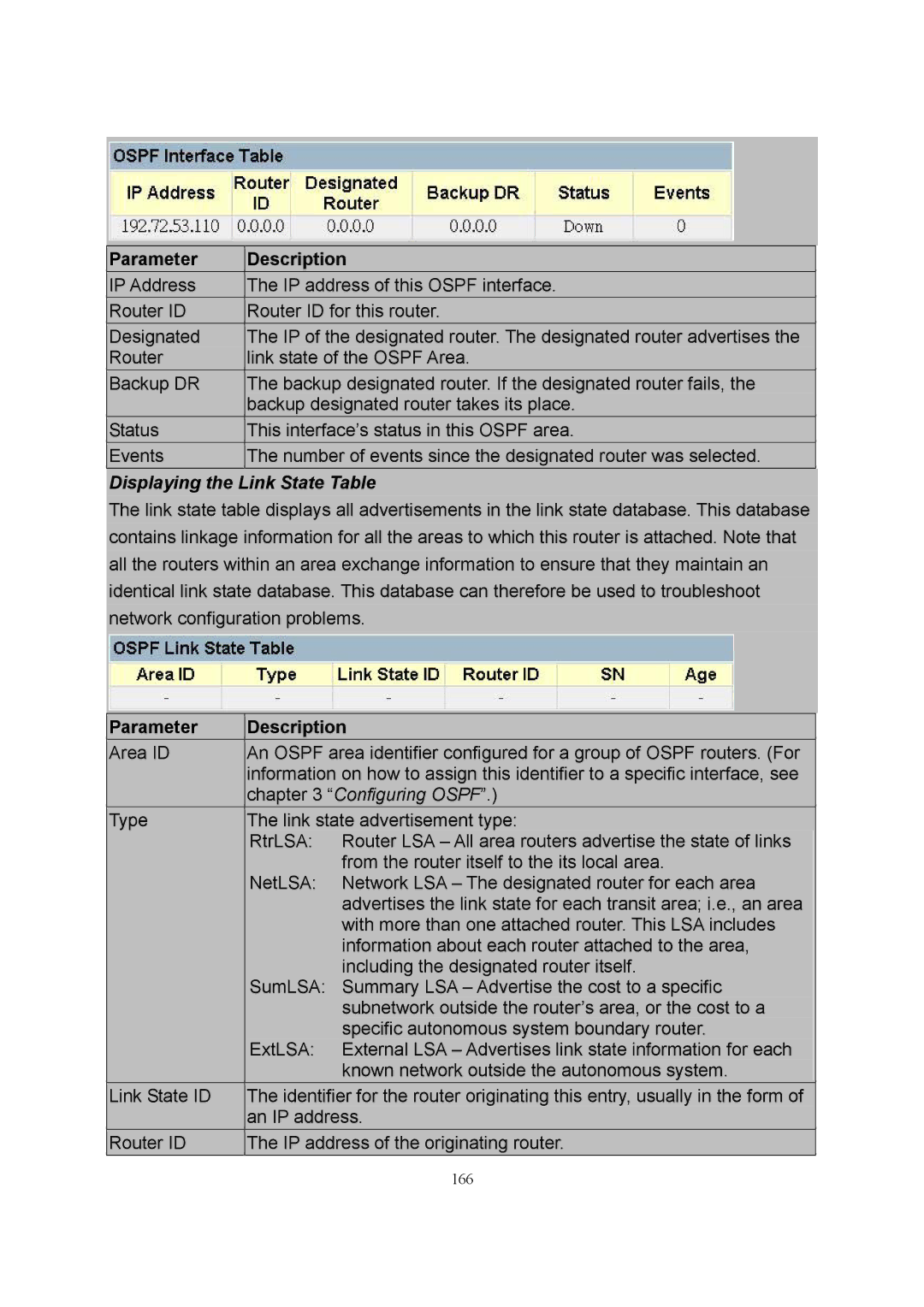
|
|
Parameter | Description |
IP Address | The IP address of this OSPF interface. |
Router ID | Router ID for this router. |
Designated | The IP of the designated router. The designated router advertises the |
Router | link state of the OSPF Area. |
Backup DR | The backup designated router. If the designated router fails, the |
| backup designated router takes its place. |
Status | This interface’s status in this OSPF area. |
Events | The number of events since the designated router was selected. |
|
|
Displaying the Link State Table
The link state table displays all advertisements in the link state database. This database contains linkage information for all the areas to which this router is attached. Note that all the routers within an area exchange information to ensure that they maintain an identical link state database. This database can therefore be used to troubleshoot network configuration problems.
| Parameter | Description |
| |
|
| |||
| Area ID | An OSPF area identifier configured for a group of OSPF routers. (For |
| |
|
| information on how to assign this identifier to a specific interface, see |
| |
|
| chapter 3 “Configuring OSPF”.) |
| |
| Type | The link state advertisement type: |
| |
|
| RtrLSA: | Router LSA – All area routers advertise the state of links |
|
|
|
| from the router itself to the its local area. |
|
|
| NetLSA: | Network LSA – The designated router for each area |
|
|
|
| advertises the link state for each transit area; i.e., an area |
|
|
|
| with more than one attached router. This LSA includes |
|
|
|
| information about each router attached to the area, |
|
|
|
| including the designated router itself. |
|
|
| SumLSA: | Summary LSA – Advertise the cost to a specific |
|
|
|
| subnetwork outside the router’s area, or the cost to a |
|
|
|
| specific autonomous system boundary router. |
|
|
| ExtLSA: | External LSA – Advertises link state information for each |
|
|
|
| known network outside the autonomous system. |
|
| Link State ID | The identifier for the router originating this entry, usually in the form of |
| |
|
| an IP address. |
| |
| Router ID | The IP address of the originating router. |
| |
|
|
| 166 |
|
